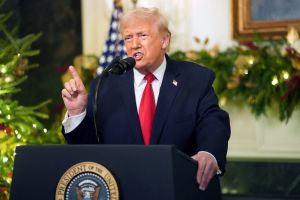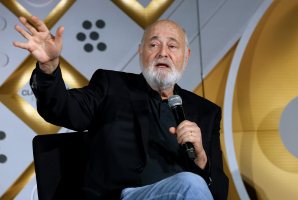U.S. Had Clear Shot of Kim Jong-Un But Didn't Pull the Trigger
When North Korea shot an intercontinental ballistic missile on July 4, the U.S. had a very easy shot at killing Kim Jong-un, but they didn't. This was learned from the Diplomat senior editor Ankit Panda who posted on Twitter a 14-second clip of the leader before the missile launch.
The footage is part of a 70-minute video taken by U.S. military and intelligence personnel. The raw video, surreptitiously taken several meters from the launch pad, showed Kim casually strolling around, away from his bodyguards while puffing a cigarette beside the liquid-fueled Hwasong-14 rocket.
The dictator was an easy target that time, but it was obvious that the surveillance's purpose was not to take him out but merely to observe and confirm how advanced and potent North Korea's missile forces had become. Pyongyang claimed that the long-range ballistic missile can reach Alaska.
Washington's inaction in taking the opportunity to get rid of one of the world's living ruthless leaders confirms Admiral Harry Harris' statement that the U.S. wanted "to bring Kim Jong Un to his senses, not his knees." Regime change, it turns out, is not America's ultimate goal.
The next day, the U.S. and South Korea conducted joint missile drills in a "show of force" to the North. By allowing the surveillance footage to leak, the U.S. is sending a message that it is capable of penetrating Kim's security, and it could have stopped the test launch even before it began.
But the U.S. took the high road of respecting North Korean sovereignty and is committed to resolving disputes between the two countries diplomatically. By proving it isn't interested in killing Kim, the U.S. hopes this would convince him to abandon its nuclear weapons program.
The U.S. has ruled out "decapitating" the North Korean leadership as it doesn't assure regional stability will be maintained. Last month, it was reported that Kim was a subject of a foiled "assassination plot using a car crash" to be staged by spies of impeached South Korean President Park Geun-hye.



























